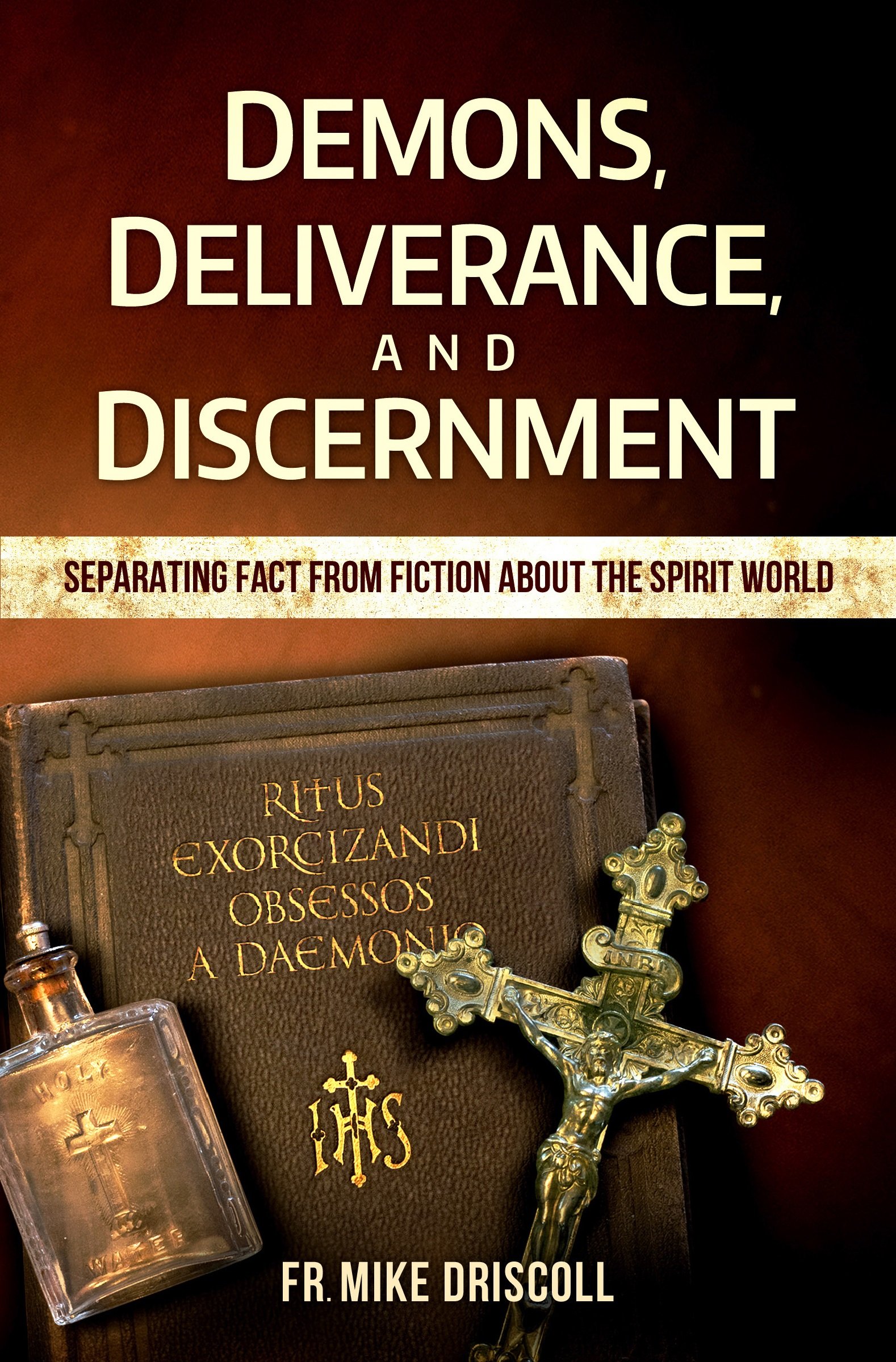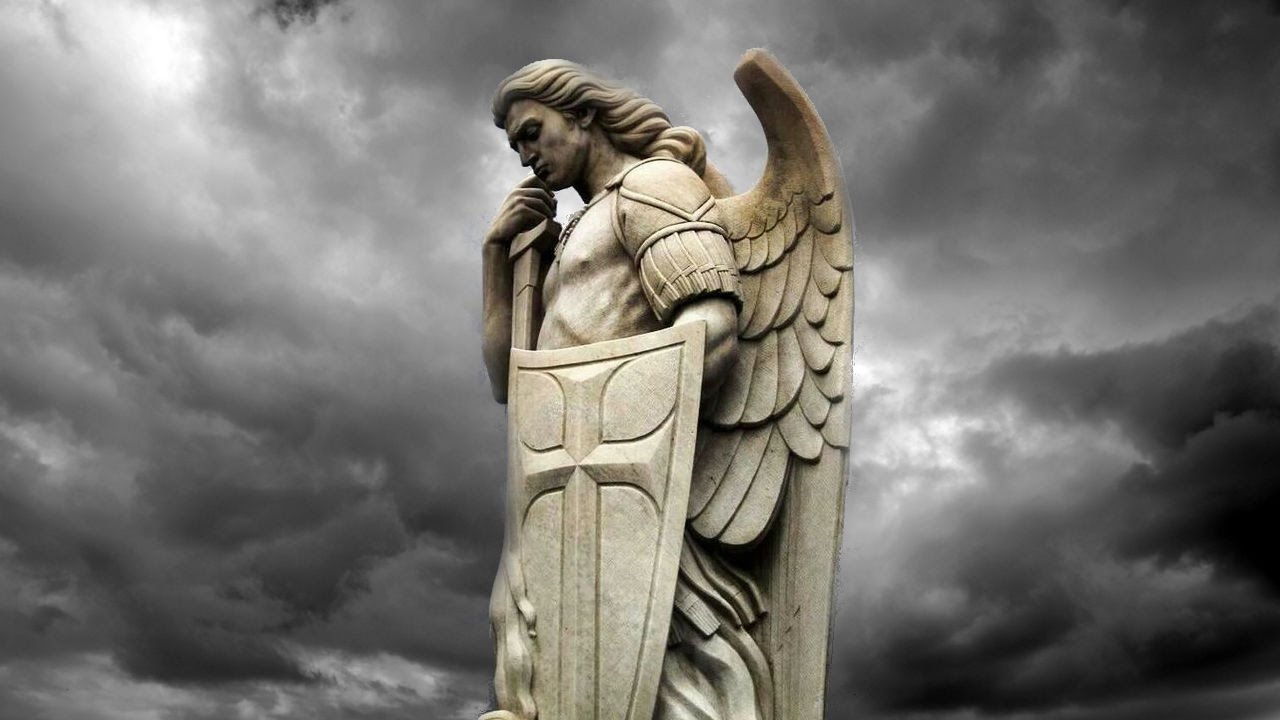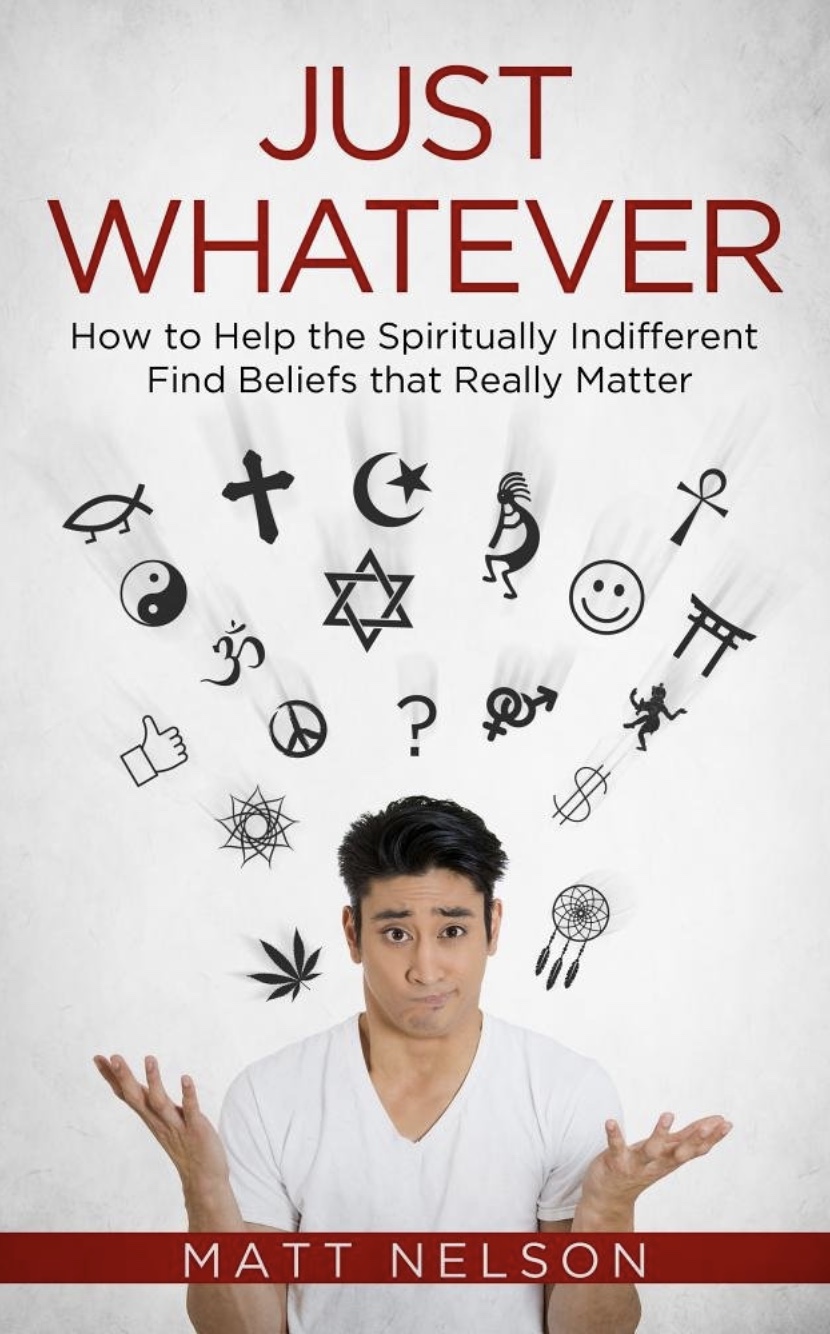
“”Be sober, be watchful. Your adversary the devil prowls around like a roaring lion, seeking someone to devour. Resist him, firm in your faith.” -1 Peter 5:8–9
“‘Spiritual combat’ is another element of life which needs to be taught anew and proposed once more to all Christians today. It is a secret and interior art, an invisible struggle in which we engage every day against the temptations, the evil suggestions that the demon tries to plant in our hearts.” -St Pope John Paul II, May 25, 2002
“This generation, and many others, have been led to believe that the devil is a myth, a figure, an idea, the idea of evil… But the devil exists and we must fight against him.” -Pope Francis, Halloween 2014
How Do People Become Possessed by Demons?
Exorcists are in general agreement as to how a person becomes possessed by demons. As one exorcist says, “The darkness is there, waiting to receive an invitation.
Exorcists identify three categories of activities and experiences that open a person to demonic possession. We can think of these categories as doors for demonic attacks: they invite demons in, but they do not always result in possession. In fact, as we shall see, full-fledged demonic possession may be extremely rare—depending upon whose opinion we accept.
The first category is referred to as patterns of sin. This does not mean simply being a sinner, since all of us are sinners. Rather, this refers to people who have a habit of serious sin that they like, are attached to, and have no desire or intention of stopping. There is a conscious decision to give one’s self over to the sin. Demons can see this as an invitation to their activity.
The second category of influences that invite demons into one’s life is the occult. Occult practices include Satanism, the use of tarot cards and the Ouija board, and consulting psychics and mediums. This also includes necromancy, the attempt to consult with spirits of the dead for the sake of learning hidden knowledge or future events.
Being a victim of trauma or abuse is a third category of experience that can open the door to demonic possession. The trauma may be witnessing a murder, suicide, or horrific accident; the abuse may be sexual, physical, or psychological.
One exorcist explains that those who go through these experiences can end up living in the dark emotions of anger, rage, resentment, and revenge. He stressed the importance of such victims getting the psychological and spiritual help that they need, in order to have some degree of healing. If they do not, those emotions can weaken their relationship with God, and simultaneously be an opening to a relationship with evil spirits.”
-from the rite of excorcism
Psalm 53
God, by Your name save me,
and by Your might defend my cause.
God, hear my prayer;
hearken to the words of my mouth.
For haughty men have risen up against me,
and fierce men seek my life;
they set not God before their eyes.
See, God is my helper;
the Lord sustains my life.
Turn back the evil upon my foes;
in your faithfulness destroy them.
Freely will I offer You sacrifice;
I will praise Your name, Lord, for its goodness,
Because from all distress you have rescued me,
and my eyes look down upon my enemies.
======
Save your servant.
Who trusts in you, my God.
Let him/her find in You, Lord, a fortified tower.
In the face of the enemy.
Let the enemy have no power over him/her.
And the son of iniquity be powerless to harm him/her.
Lord, send him/her aid from your holy place.
And watch over him/her from Sion.
Lord, heed my prayer.
And let my cry be heard by You…
…I command you, unclean spirit, whoever you are, along with all your minions now attacking this servant of God, by the mysteries of the incarnation, passion, resurrection, and ascension of our Lord Jesus Christ, by the descent of the Holy Spirit, by the coming of our Lord for judgment, that you tell me by some sign your name, and the day and hour of your departure. I command you, moreover, to obey me to the letter, I who am a minister of God despite my unworthiness; nor shall you be emboldened to harm in any way this creature of God, or the bystanders, or any of their possessions…
…I cast you out, unclean spirit, along with every Satanic power of the enemy, every spectre from hell, and all your fell companions; in the name of our Lord Jesus +Christ. Begone and stay far from this creature of God.+ For it is He Who commands you, He Who flung you headlong from the heights of heaven into the depths of hell. It is He Who commands you, He Who once stilled the sea and the wind and the storm. Hearken, therefore, and tremble in fear, Satan, you enemy of the faith, you foe of the human race, you begetter of death, you robber of life, you corrupter of justice, you root of all evil and vice; seducer of men, betrayer of the nations, instigator of envy, font of avarice, fomentor of discord, author of pain and sorrow. Why, then, do you stand and resist, knowing as you must that Christ the Lord brings your plans to nothing? Fear Him, who in Isaac was offered in sacrifice, in Joseph sold into bondage, slain as the paschal lamb, crucified as man, yet triumphed over the powers of hell. (The three signs of the cross which follow are traced on the brow of the possessed person). Begone, then, in the name of the Father, + and of the Son, + and of the Holy + Spirit. Give place to the Holy Spirit by this sign of the holy + cross of our Lord Jesus Christ, Who lives and reigns with the Father and the Holy Spirit, God, forever and ever…
…I adjure you, ancient serpent, by the judge of the living and the dead, by your Creator, by the Creator of the whole universe, by Him Who has the power to consign you to hell, to depart forthwith in fear, along with your savage minions, from this servant of God, N., who seeks refuge in the fold of the Church. I adjure you again, + (on the brow) not by my weakness but by the might of the Holy Spirit, to depart from this servant of God, N. , whom almighty God has made in His image. Yield, therefore, yield not to my own person but to the minister of Christ. For it is the power of Christ that compels you, Who brought you low by His cross. Tremble before that mighty arm that broke asunder the dark prison walls and led souls forth to light. May the trembling that afflicts this human frame, + (on the breast) the fear that afflicts this image + (on the brow) of God, descend on you. Make no resistance nor delay in departing from this man, for it has pleased Christ to dwell in man. Do not think of despising my command because you know me to be a great sinner. It is God + Himself who commands you; the majestic Christ + Who commands you. God the Father + commands you; God the Son + commands you; God the Holy + Spirit commands you. The mystery of the cross commands +you. The faith of the holy apostles Peter and Paul and of all the saints commands + you. The blood of the martyrs commands + you. The continence of the confessors commands + you. The devout prayers of all holy men and women command + you. The saving mysteries of our Christian faith command + you.
Depart, then, transgressor. Depart, seducer, full of lies and cunning, foe of virtue, persecutor of the innocent. Give place, abominable creature, give way, you monster, give way to Christ, in Whom you found none of your works. For He has already stripped you of your powers and laid waste your kingdom, bound you prisoner and plundered your weapons. He has cast you forth into the outer darkness, where everlasting ruin awaits you and your abettors. To what purpose do you insolently resist? To what purpose do you brazenly refuse? For you are guilty before almighty God, whose laws you have transgressed. You are guilty before His Son, our Lord Jesus Christ, Whom you presumed to tempt, Whom you dared to nail to the cross. You are guilty before the whole human race, to whom you proferred by your enticements the poisoned cup of death.
Therefore, I adjure you, profligate dragon, in the name of the spotless + Lamb, who has trodden down the asp and the basilisk, and overcome the lion and the dragon, to depart from this man (woman) + (on the brow), to depart from the Church of God + (signing the bystanders). Tremble and flee, as we call on the name of the Lord, before whom the denizens of hell cower, to Whom the heavenly Virtues and Powers and Dominations are subject, Whom the Cherubim and Seraphim praise with unending cries as they sing: Holy, holy, holy, Lord God of Sabaoth. The Word made flesh + commands you; the Virgin’s Son + commands you; Jesus + of Nazareth commands you, Who once, when you despised His disciples, forced you to flee in shameful defeat from a man; and when He had cast you out you did not even dare, except by His leave, to enter into a herd of swine. And now as I adjure you in His + name, begone from this man (woman) who is His creature. It is futile to resist His + will. It is hard for you to kick against the + goad. The longer you delay, the heavier your punishment shall be; for it is not men you are condemning, but rather Him Who rules the living and the dead, Who is coming to judge both the living and the dead and the world by fire…
…Therefore, I adjure you every unclean spirit, every spectre from hell, every satanic power, in the name of Jesus + Christ of Nazareth, Who was led into the desert after His baptism by John to vanquish you in your citadel, to cease your assaults against the creature whom He has formed from the slime of the earth for His own honor and glory; to quail before wretched man, seeing in him the image of almighty God, rather than his state of human frailty. Yield then to God, + Who by His servant, Moses, cast you and your malice, in the person of Pharaoh and his army, into the depths of the sea. Yield to God, + Who, by the singing of holy canticles on the part of David, His faithful servant, banished you from the heart of King Saul. Yield to God, + Who condemned you in the person of Judas Iscariot, the traitor. For He now flails you with His divine scourges, + He in whose sight you and your legions once cried out: “What have we to do with you, Jesus, Son of the Most High God? Have you come to torture us before the time?” Now He is driving you back into the everlasting fire, He who at the end of time will say to the wicked: “Depart from me, you accursed, into the everlasting fire which has been prepared for the devil and his angels.” For you, 0 evil one, and for your followers there will be worms that never die. An unquenchable fire stands ready for you and for your minions, you prince of accursed murderers, father of lechery, instigator of sacrileges, model of vileness, promoter of heresies, inventor of every obscenity.
Depart, then, + impious one, depart, + accursed one, depart with all your deceits, for God has willed that man should be His temple. Why do you still linger here? Give honor to God the Father + almighty, before Whom every knee must bow. Give place to the Lord Jesus + Christ, Who shed His most precious blood for man. Give place to the Holy + Spirit, Who by His blessed apostle Peter openly struck you down in the person of Simon Magus; Who cursed your lies in Annas and Saphira; Who smote you in King Herod because he had not given honor to God; Who by His apostle Paul afflicted you with the night of blindness in the magician Elyma, and by the mouth of the same apostle bade you to go out of Pythonissa, the soothsayer. Begone, + now! Begone, + seducer! Your place is in solitude; your abode is in the nest of serpents; get down and crawl with them. This matter brooks no delay; for see, the Lord, the ruler comes quickly, kindling fire before Him, and it will run on ahead of Him and encompass His enemies in flames. You might delude man, but God you cannot mock. It is He Who casts you out, from Whose sight nothing is hidden. It is He Who repels you, to Whose might all things are subject. It is He Who expels you, He Who has prepared everlasting hellfire for you and your angels, from Whose mouth shall come a sharp sword, Who is coming to judge both the living and the dead and the world by fire…

Saint Michael Archangel,
defend us in battle,
be our protection against the wickedness and snares of the devil;
may God rebuke him, we humbly pray;
and do thou, O Prince of the heavenly host,
by the power of God, cast into hell
Satan and all the evil spirits
who prowl through the world seeking the ruin of souls.
Amen.
Love, and Divine protection,
Matthew



















